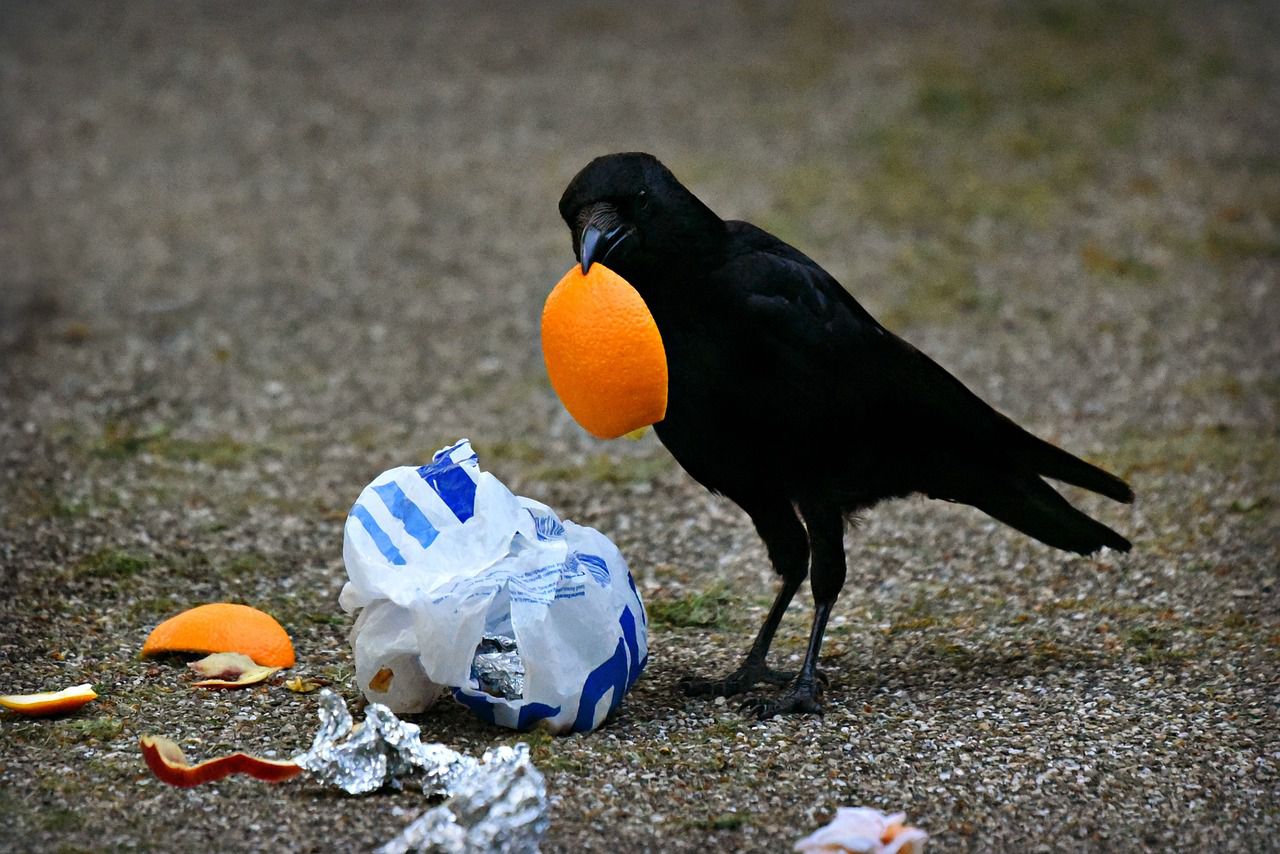Have you ever noticed crows or other birds scattering your trash bins?
Birds, particularly scavenging species, have been observed scattering trash bins for various reasons.
Let's find out more.

Food Source
Trash bins often contain discarded food and leftovers, which are attractive to birds seeking an easily accessible food source.
Scavenging birds, such as crows, gulls, and pigeons, have learned to associate trash bins with potential meals.
Instinctual Behavior
Birds have natural foraging instincts, and their scavenging behavior is driven by their innate drive to search for food.
Trash bins offer an abundant and concentrated source of potential food items, triggering their foraging instincts.
Adaptability
Birds are intelligent and adaptable creatures.
Over time, some bird species have learned to associate humans and their activities with food sources.
Trash bins are often in close proximity to human settlements and public areas, making them easily accessible targets for birds seeking food.
Lack of Natural Food
Urbanization and habitat destruction have impacted bird populations, limiting their access to natural food sources.
Trash bins provide an alternative food supply, albeit an unnatural one, to compensate for the loss of their natural foraging habitats.
Trash Bin Design
Some trash bins may have designs that make it relatively easy for birds to access the contents.
For example, bins with loose or easily removable lids can be more vulnerable to bird intrusion and scattering.












